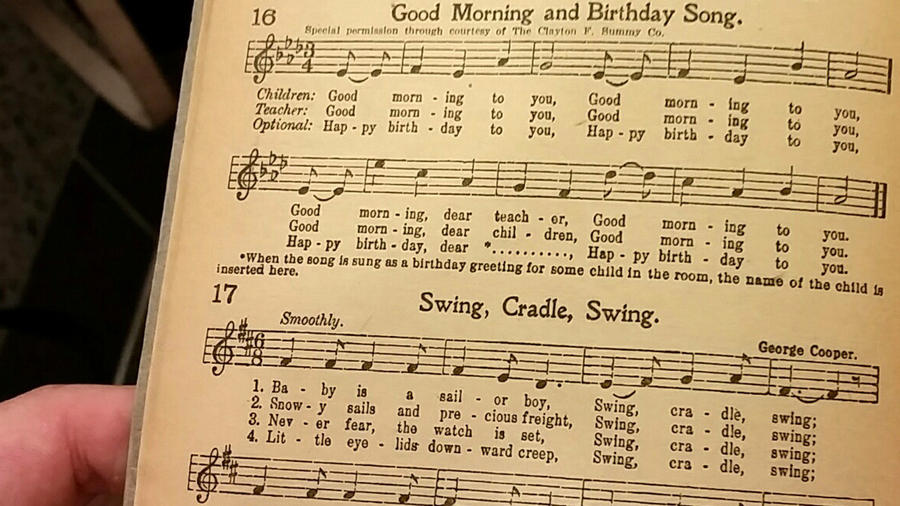
Have you ever wondered why the waiters at TGI Fridays sing their own unique, annoying song when it’s time to bring out the cake and embarrass you on your birthday? No, it’s not to demonstrate their wild and gregarious originality. It’s because, up until recently, everyone thought that Warner/Chappell owned the publishing rights to “Happy Birthday,” and restaurants didn’t want to have to shell out a ton of cash in order to sing that more popular birthday tune.
But yesterday a federal judge determined that “Happy Birthday,” which has passed from one rights owner to another over the last 80 years, should have been in the Public Domain all along — meaning nobody owns it, or rather, everybody owns it.
Sad news for Warner. Good news for restaurants. Good news for artists who are just itching to record and release their own grindcore or chiptune or symphonic versions of “Happy Birthday.” And great news for filmmakers, who’ve had to pay Warner thousands of dollars in the past to license the song for their movies. In fact, it’s been reported that Warner has charged up to six figures for the use of the popular song, which generates an average of $2mm per year in revenue for the publishing company.
So why the late change? You can check out the full history HERE, but it involves the discovery that both the melody AND lyrics to “Happy Birthday” were written before 1923, the general cut-off date before which any material is considered to reside in the Public Domain.
Whoooooops! So that bogus copyright claim got passed on from Clayton F. Summy Co. (the original publisher), to Birch Tree Group, to Warner/Chappell, who up until about two years ago mentioned in the very first sentence of their corporate biography that they controlled the rights to “Happy Birthday” — that’s how important this song was to their publishing catalog.
No word yet on whether Warner will appeal, or if they’ll be forced to pay back tens of millions in licensing fees collected over the years on an invalid copyright, but according to the LA Times article, the plaintiff’s attorneys have said they plan to move to qualify the lawsuit as a class-action in an effort to recoup royalties paid since “at least” 1988, and possibly all the way back to 1935. That’s a lot of dough.
Again, if you’re looking for a more detailed backstory on “Happy Birthday,” click HERE.
[hana-code-insert name=’publishing-guide-make-money’ /]

